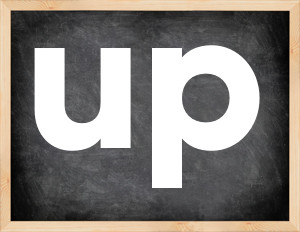 The English verb 'up' is pronounced as [ʌp].
The English verb 'up' is pronounced as [ʌp].
Related to:
regular verbs.
3 forms of verb up: Infinitive (up), Past Simple - (upped), Past Participle - (upped).
Here are the past tense forms of the verb up
👉 Forms of verb up in future and past simple and past participle.
❓ What is the past tense of up.
Up: Past, Present, and Participle Forms
| Base Form | Past Simple | Past Participle |
|---|---|---|
| up [ʌp] |
upped [ʌpt] |
upped [ʌpt] |
What are the 2nd and 3rd forms of the verb up?
🎓 What are the past simple, future simple, present perfect, past perfect, and future perfect forms of the base form (infinitive) 'up'?
Learn the three forms of the English verb 'up'
- the first form (V1) is 'up' used in present simple and future simple tenses.
- the second form (V2) is 'upped' used in past simple tense.
- the third form (V3) is 'upped' used in present perfect and past perfect tenses.
What are the past tense and past participle of up?
The past tense and past participle of up are: up in past simple is upped, and past participle is upped.
What is the past tense of up?
The past tense of the verb "up" is "upped", and the past participle is "upped".
Verb Tenses
Past simple — up in past simple upped
(V2).
Future simple — up in future simple is up (will + V1).
Present Perfect — up in present perfect tense is
upped
(have/has + V3).
Past Perfect — up in past perfect tense is
upped
(had + V3).
up regular or irregular verb?
👉 Is 'up' a regular or irregular verb? The verb 'up' is regular verb.
Examples of Verb up in Sentences
- The blizzard is up (Present Simple)
- Can you turn up the radio? (Present Simple)
- Inflation is up by 3% (Present Simple)
- He has upped his price by 10%. (Present Perfect)
- Soon he upped and left. (Past Simple)
- We are upping our offer (Present Continuous)
- The company will up the costs (Future Simple)
- We are upping the production of new product (Present Continuous)
- They upped and ran away (Past Simple)
- She is upping her fees (Present Continuous)